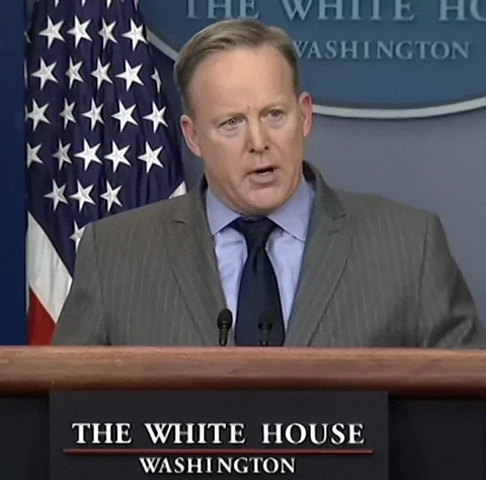While President Trump has been well known for his criticism of the media so far, his administration took an unprecedented step Friday when press secretary Sean Spicer blocked several news organizations from attending a press briefing, according to The Independent.
Spicer gave the press conference in an alternate location, and did not allow cameras into the room. He explained his actions by saying that he wanted to reduce the pool of reporters allowed into the briefing, and later decided to expand the pool again and during this expansion not all of the organizations originally included were re-included.
Spicer called the decision a way of “pushing back” against the media. “We’re not going to sit back and let false narratives, false stories and inaccurate facts get out there.” Many of the organizations, including The New York Times, The BBC, CNN and The LA Times are organizations that Trump has criticized by name for months, often for being critical of his administration, or for contributing to “fake news.” Many of the organizations had also been specifically listed in a tweet made by Trump on Feb. 17, calling the media “the enemy of the people,” according to USA Today.
Several political, ethical, and journalistic organizations have protested this action; some in action, and others in words. News organizations including Time and the Associated Press boycotted the briefing to protest the exclusion of other journalists, while other news organizations including the Wall Street Journal attended the briefing but later said that they would not have had they known that other credentialed news organizations were being excluded.
Traditionally conservative Fox News, who were allowed to attend the briefing, encouraged conservative viewers not to accept the ban of other credentialed news organizations by the White House. White House Correspondents’ Association president Jeff Mason encouraged organizations that were allowed in to share their information with those who were not allowed in, and stated that “The Board will be discussing this further with White House Staff.”
Committee to Protect Journalists, executive director Joel Simon, described the issue by saying “It is not the job of political leaders to determine how journalists should conduct their work, and sets a terrible example for the rest of the world, where sources often must remain anonymous to preserve their own lives.” Simon’s quote directly addressed Trump’s criticism of unnamed news sources, which Trump claims adds to the issue of “fake news.” Trump had commented on anonymous sources earlier that day in a speech at the Conservative Political Action Conference, stating “They shouldn’t be allowed to use sources unless they use somebody’s name.” Banned news organizations including the New York Times have pointed out that it is not uncommon for sources, including Trump’s own staff, to require anonymity before giving statements to press.
The New York Times also pointed out that no U.S. president has ever taken such means to control the media, and called the action a serious threat to democracy in a recent article regarding their having been banned from the briefing.


